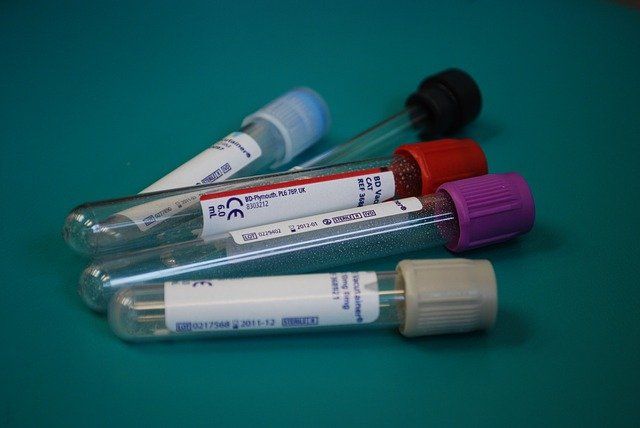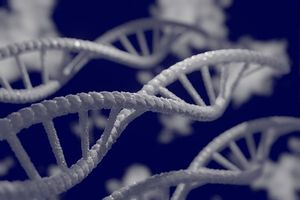In November 2001 the American company Advanced Cell Technology announced that it had been successful in cloning a human being. This was ‘the first such announcement from a research group with an established track record in the use of cloning’1.
This dramatic event (coupled with the fact that cloning techniques are now legal in Britain) faces Christians with pressing issues. Responding appropriately requires a thorough knowledge of God’s Word, concern for our neighbours, and an appreciation of the relevant scientific facts.
What is cloning?
A ‘clone’ is, simply, a copy. At its most basic, human cloning is any process that forms a new human life genetically identical to another. Identical twins are natural human clones with exactly the same genes.
Our genes are intimately related to who we are. They help to determine attributes, such as those that make up physical appearance and even personality.
In the normal course of events, each of us inherits half our genes from each parent when sperm and egg unite to form a new, genetically unique individual.
Cloning uses various techniques that take all the genes from one ‘parent’ and put them into an egg that has had its own half-set of genes removed. This creates a new person genetically identical to the donor – a clone.
Of course, identical genes do not necessarily guarantee identical human beings. Even identical twins have some small differences.

Why clone?
There are three main reasons cited for cloning human beings.
The first is therapeutic. Human clones are produced to be a source of cells to repair damaged parts of the donor’s body. In conditions like Parkinson’s disease, diabetes and heart attack (where cells in the brain, pancreas or heart stop working properly), the only hope for a cure is to replace failing cells with new ones.
Unlike the liver, not all organs can repair themselves; they require new cells from another source. One cannot simply take cells from a healthy person and give them to the sufferer.
Just as the body’s immune system attacks an organ transplanted from someone not a ‘close match’, so the immune system views with suspicion genetically different transplanted cells and rejects them.
But therapeutic cloning holds out the hope of producing new, healthy cells, genetically identical to the donor’s, able to restore damaged organs to full functionality without being rejected by the donor.
Therapeutic cloning thus produces new human beings for use as a source of biological spare parts. It is currently legal in the UK.
Eugenics

The second reason for cloning humans is the one that usually leaps to people’s minds. It is reproductive cloning. This refers to the production of one or more individuals intended to be genetically identical to their ‘parent’.
Such cloning is for the purposes of treating infertility, replacing a lost child, or perpetuating some perceived advantageous characteristic. The latter is the field of eugenics.
A classic aim of eugenics is to clone intelligent or athletic human beings in order to produce a ‘super race’. This is not an aim of the scientific mainstream and is currently illegal in the UK. But there are loopholes in our legislation that could be exploited 2.
A third reason cited is to advance scientific knowledge, even if there is no other beneficial aim in mind. Although this has been aired by the scientific community, it is not being advocated at present.
At the time of writing, cloning for therapeutic and research purposes is legal in the UK, while reproductive cloning is not. However, it is important to be clear that whether cloning is intended for therapeutic, reproductive or research purposes, the same practical techniques are used in each case.
Two key questions
There are two key questions to be answered before the ethical implications can be accurately assessed. Firstly, is it ever right to end a human life? And, secondly, when does individual human life begin?
Answering these biblically also helps our thinking on two other related and important issues – abortion and contraception.
The answer to the first question is relatively straightforward. Human beings are made in God’s image 3; God forbids the intentional killing of human beings 4; and Jesus Christ gave his life for sinners 5.

So I am led to conclude that each and every human life is of inestimable value, and homicide is never justifiable or excusable.
There are also specific biblical cases where the taking of human life by another is not represented as murder, namely, capital punishment 6, direct divine commandments (only in the Old Testament) 7, self-defence 8 and accidents 9.
Conception
The answer to the second question, ‘When does life begin?’, is more complex. Even Christian doctors are not in complete agreement about it. While it is not possible to explore this matter here, a full discussion can be found on the Christian Medical Fellowship website 10,11.
Difficulty comes in reaching a consensus because, while the Bible gives us relevant general principles, it gives no specific statement about the particular issue of cloning.
However, along with many other evangelical Christians, I believe the only reasonable assumption is that a new human life begins at conception.
It is apparent scientifically that, at the time of conception when sperm fuses with egg, a genetically unique human life is formed, albeit consisting of just one cell. The Bible teaches that God views foetuses as human beings12 and David speaks of having been sinful from conception 13.
As being ‘sinful’ is sadly (and undeniably) a distinctive attribute of human beings, the clear implication is that David was fully human from the time he was conceived. From that point onwards he was a morally responsible person, also precious to God.
These answers demonstrate that a deliberate human action leading to the destruction of an embryo can only be viewed as murder. And murder is unacceptable to God and man.
Ethical objections
Cloning techniques are currently a long way from being perfected. Much more research is required before practical benefits can be fully realised. This research could well result in the production of hundreds of thousands of human embryos, which will either die or be discarded, as has already happened in fertility treatments (IVF).

Even when we are able to clone humans successfully, there is likely to be a high initial rate of embryos being produced with disabling and ultimately fatal abnormalities. This outcome has certainly been the result with non-human cloning.
Mass destruction and cruel experimentation is inevitable if human cloning is allowed to proceed. Many will be murdered in the hope that some may be cured.
While this is reason enough to justify a total ban on human cloning, there are other potential long-term problems. For example, what would future life be like for a human clone?
Dangerous precedent
Accepting therapeutic cloning establishes dangerous precedents. Bringing a new person into existence simply to act as a source of biological spare parts, tramples on that person’s unique identity as someone created in God’s own image. It is reminiscent of horror science-fiction movies.
It will pave the way for reproductive cloning, the ethical implications of which few are able to predict. Moreover, it will treat human beings as mere commodities to be exploited.
The family as a divine institution, for our good and God’s glory, would be undermined. Doctors in general and psychiatrists in particular already know the devastating impact on their patients of disruption in marriage and parenthood. The psychological implications of all this for a clone would be traumatic.
Some might object that banning cloning denies all possibility of future medical cures to those severely ill, who can only cling to the hope of what cloning might one day offer them.
But the use of adult stem cells instead of cloned embryo cells has now emerged as a promising alternative in medical therapies. This approach carries none of the ethical and fewer of the technological problems 14.
Conclusions
When the Tower of Babel was being built it seemed that no depraved human endeavour would be unsuccessful. God’s solution then was to disrupt human communication and unity of purpose (Genesis 11).
Today’s scientific world is building another Babylonian Tower. Abortion is already legal. Euthanasia, already practised in Holland, is knocking at the door. Since cloning has heralded the opening of the 21st century, how will this century end?
The cloning of human beings, for whatever motive, must be resolutely opposed by prayer, preaching and political action.
T. Everett Julyan
References
1. ‘Human Cloning: Medical advance or dangerous precedent?’ BBC News, 4 December 2001 (news.bbc.co.uk)
2. Press Release, 26 November 2001. Dr Peter Saunders, Christian Medical Fellowship (cmf.org.uk)
3. Genesis 1:26-27; 9:6
4. Exodus 20:13; 23:7
5. John 3:16; 1 Timothy 1:15
6. Genesis 9:6; Numbers 35:30
7. Numbers 15:32-36; 1 Samuel 15:3
8. Exodus 22:2-3
9. Deuteronomy 19:1-7; Joshua 20:1-6
10. Abortion: Time to Reconsider? Dr Peter Saunders
11. Abortion and Euthanasia (Part 1). Dr Peter Saunders
12. Psalm 139:13-16; Jeremiah 1:5; Romans 9:11-13
13. Psalm 51:5
14. Therapeutic cloning and stem cells. Dr Phil Jones, Christian Medical Fellowship.



